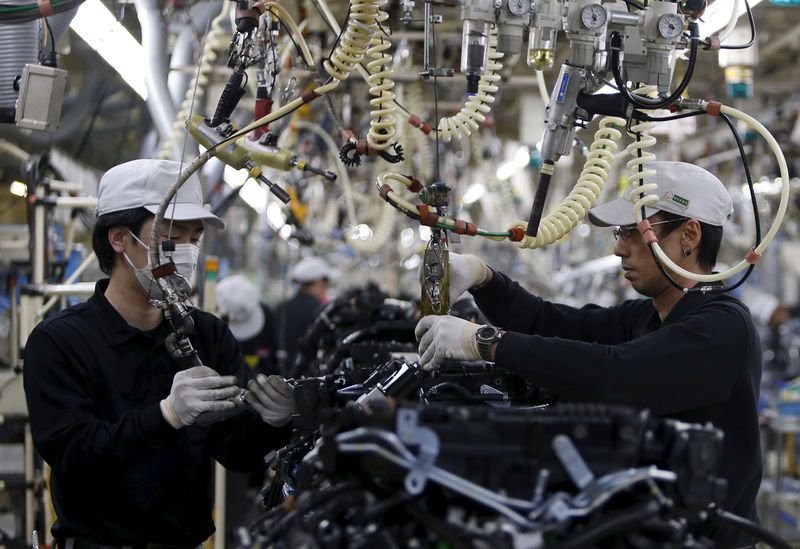Japan’s factory activity falls on soft orders – PMI
2023.07.31 21:38

© Reuters. FILE PHOTO: Employees work at the main assembly line of V6 engine at the Nissan Iwaki Plant in Iwaki city, Fukushima prefecture, Japan, April 5, 2016. REUTERS/Yuya Shino/File Photo
TOKYO – Japan’s factory activity contracted at a faster pace in July, a business survey showed on Tuesday, taking a hit from soft orders amid weakening global economic conditions.
The final au Jibun Bank Japan manufacturing purchasing managers’ index (PMI) fell to 49.6 in July, slightly higher than flash 49.4 but down from 49.8 in June.
The decline was largely due to a deterioration in new orders, given weak customer demand from domestic and overseas markets, said Usamah Bhatti at S&P Global (NYSE:) Market Intelligence, which compiled the survey.
Output, another major component of the headline index, kept shrinking albeit at a slower rate than in June. Data on Monday showed Japan’s factory output grew in June for the first time in two months thanks to solid auto production.
Subindexes gauging new orders and output both stayed in the sub-50 territory in June for a second month. A reading below the 50 line indicates a contraction.
Japan has to date weathered worsening global economic conditions relatively well thanks to robust domestic service activity and ultra-loose monetary policy. Export-reliant manufacturers, however, have suffered from slowing demand overseas.
On a brighter note, the S&P survey showed easing cost pressures for companies thanks to sliding fuel and commodity prices.
“There were sustained signs that inflationary pressures were easing in July, as signalled by the slowest rate of input cost inflation since February 2021 to a reading that was broadly similar to the long-run series average,” Bhatti said.
Looking a year ahead, manufacturers’ output expectations remained upbeat, with the subindex in line with June’s reading, which was the strongest since October 2021.
Hopes for a sustained improvement in demand as well as the fading economic impact of the pandemic and inflationary pressures contributed to the positive outlook, the survey showed.







